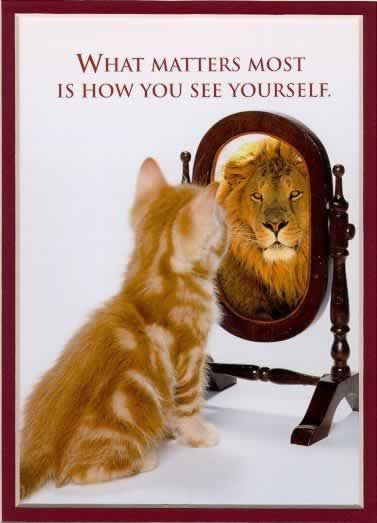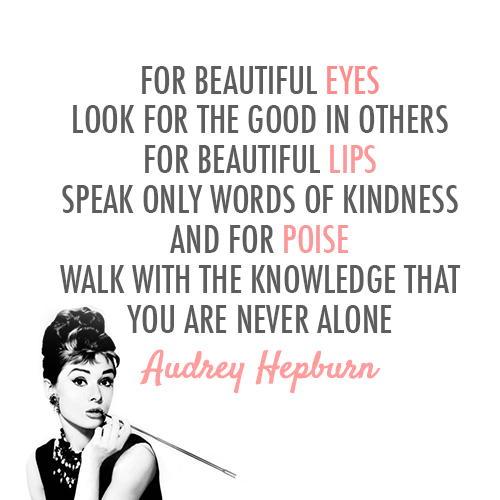
Confidence is attractive and it’s a quality we all strive for. But the real kind does not require faking it. Those who have it are convinced of their worth while those who don’t depend on others admiration and praise to feel good about themselves. These five telltale signs of fake confidence will show you what’s genuine and what’s not, and how you can make changes in your approach. (Estimated reading time: 6 minutes)
“Know your worth and stop giving people discounts.”
— Unknown
Confidence is attractive. People who are perceived as confident win attention, admiration, and opportunities wherever they go.
You can easily spot the confident people at a gathering. You’ll see them telling stories and jokes, surrounded by people intently listening, or chatting over a glass of wine with the most attractive person in the room. Like a preening peacock, their movements seem effortless and poised.
I used to envy people like that. In my younger years, I was accused of being too shy, reserved, and awkward. It was only later that I realized my shyness was self-preservation. It was my way to avoid getting hurt, because I didn’t feel good enough to be the center of attention.
The age-old advice is to “fake it till you make it.” Wear the right fashion labels, fix your body language, speak with authority, even if you have to pretend you know what you’re talking about. This pseudo-confidence is prescribed to many of us as an antidote to cover up our insecurities.
Giving the appearance of confidence is deeply rooted in our shared animal evolution. Body language plays a vital part in determining our ranking within the dominance hierarchy (a type of social structure within a group of animals). This hierarchy determines which members have more power and better access to resources like shelter, food, and territory, and who can attract the best mates.

In social mammals like wolves, birds, apes, and lions, dominance can be observed through certain body cues and behaviors. Animals that show expansive and open body language like spreading their shoulders, raising limbs or wings, and leaning back, as opposed to curling up, hunching over, or hiding their neck or face, are the ones that make it to the top.
This pecking order is entrenched in human society as well. Whether in the workplace or a group of friends, our appearance and actions play a major role in how others view our competency. In our fight to “make it” and be seen by others, we inadvertently become actors.
William Shakespeare rightly said, “All the world’s a stage, and all the men and women merely players.” We play our assigned roles in everyday life to meet expectations and fit into the social fabric. Playing the part conceals our fragility and our yearning for acceptance, belonging, and recognition. We’re willing to put on a show if it helps us meet our basic emotional needs.
When used intentionally, “fake confidence” can be a great step in the right direction. An example could be asking your boss for a raise, despite fears of having the door slammed in your face. Even if your request is declined, you still win because you’ve confirmed that you’re capable of putting yourself out there and facing rejection. Confidence begets confidence.

But illusory confidence can take us only so far. After a while, faking confidence will make you feel like an imposter. It will show up in your psyche as insecurities and fears. Those who get close enough, and who are self-aware, will pick up on any phony and insincere mannerisms.
In time, the posers and show-offs are unmasked and seen for who they really are. No amount of bravado and shiny outward appearance can replace genuine confidence that has substance.
Real confidence doesn’t require faking it. Those who have it are convinced of their worth. They have developed a solid inner core because they work hard, invest in their growth and self-care, and take responsibility for healing past wounds. In other words, they have earned success on their own terms, and don’t feel the need to prove themselves to anyone.
True, quiet confidence is strong, real, and inspirational. There’s nothing garish, showy, and pretentious about it. Beloved figures like Maya Angelou, Audrey Hepburn, and Winston Churchill exuded true confidence. Mimicking their magnetism begins with getting comfortable in your own skin and sourcing your feelings of worthiness from your deeds, rather than from external validation.
Real confidence involves knowing these five telltale signs of fake confidence:
1. Fake confidence thrives on pride and entitlement: People with fake confidence have an exaggerated sense of self-importance. They believe the world should revolve around them. Their sense of entitlement convinces them that they should be favored and given special treatment by others.
Their “I’m better than you” attitude can be heard in their condescending tone and seen in their eye rolls, smirks, and upturned noses. They are walking divas who face difficulty accepting others as their equals, and who lack empathy for those who can’t benefit them or make them look good.
2. Fake confidence is sourced from possessions and labels: People with fake confidence have an identity that’s sourced from the material world: objects, net worth, professional titles, and connections. All the “stuff” in their life defines who they are and why they’re worthy of attention and praise.
They allow it to do the work for them instead of developing their inner riches. While the things we own are an expression of who we are, they cannot speak to the true essence of our being. Designer bags and fancy cars are not the highest expressions of our true selves. We could lose everything and what would be left is the self that lies within us.
3. Fake confidence is often loud and over the top: Unfortunately, there are people who think that they can purchase confidence. They believe if they stride into a room wearing expensive outfits, groomed to perfection, people will give them respect and take them seriously. For the most part, this is true for those onlookers who attribute power and privilege to outer appearances.
Some people believe that a loud and dominant presence will get them attention. A strong voice and polished speech are undoubtedly markers of confidence, but if it’s overdone, there’s a strong chance that they’re desperately trying to people-please.
4. Fake confidence seeks constant validation and approval: A fear of rejection and low self-worth fuel fake confidence. Insecurities are like a relentless beast that needs to be fed by the validation of others. Their dependence on outside approval can trap insecure people in a vicious cycle. No matter how much they accomplish or how many “likes” they get on social media, it cannot satisfy their hunger for admiration. They don’t see that by simply being themselves, grounded in who they are, they can demand attention through their presence alone.
5. Fake confidence is selfish and self-serving: Those with fake confidence are hungry for the spotlight. They need it to brag about their achievements and abilities and push their own agenda. It’s all about “me, me, me” in their world, and if you can’t be an asset to them, they have no interest in you and what you have to say.
In general, they are opportunists who are out to exploit any chance they can get to rise through the ranks, even if that involves trampling others in their wake. Through mean-spiritedness, they develop an armor that hides their humanity.
Truly confident people are quiet observers. They listen to others with an open heart. Everywhere they look, they see potential chances to give rather than take. They are sensitive to the pain and the needs of others, which inspires love and a desire to do what they can to heal and tend to collective wounds.
All my best on your journey,
Seline

Question for you: What does real confidence look like to you? What are some things that you can do to begin embodying those qualities?
Did you like this post? Sign up below, and I’ll send you more awesome posts like this every week

Seline, great article. I just had to share!!
Thank you so much Susan! That’s a great compliment coming from you. 🙂
Lots of great information here, thank you for sharing. This really is something people need to be more aware of and conscious of. It is well and good to give yourself a pep talk and even psych yourself up. But trying to pass of fake confidence and ability can be bad when others are counting on you and rely on you.